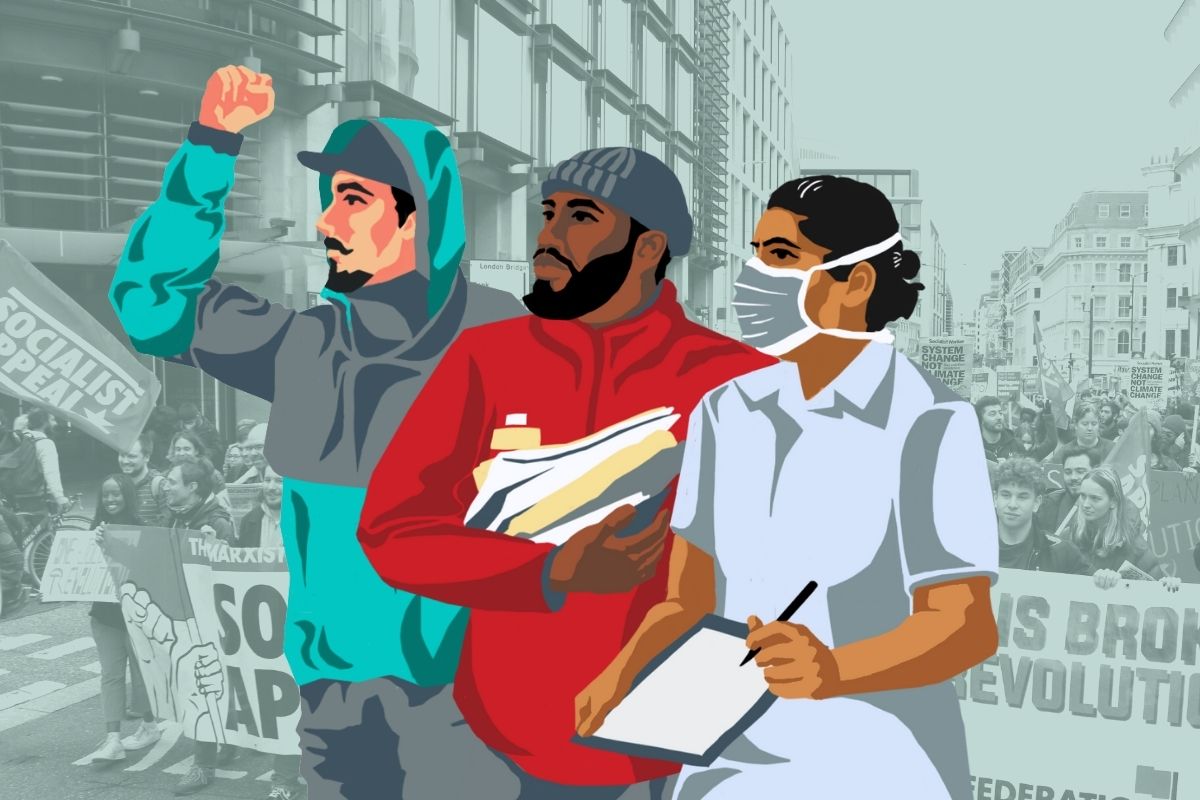Up to 12,000 workers across Britain could soon lose their jobs, due to the expected closure of dozens of Wilko outlets in the coming months.
The homeware chain is the largest UK company to collapse since supermarket monopoly Morrisons acquired McColl’s and its convenience stores last year.
The demise of both these ill-fated retailers is a harbinger of the troubles that lie ahead for many high-street businesses, and for the workers they employ – a canary in the coal mine of British capitalism.
Crumbling edifice
A number of factors lie behind Wilko’s downfall: failure to adapt to online shopping; supply chain disruption; rising costs; and an immense amount of debt, accrued to stay afloat.
Last year, for example, Wilko borrowed £40 million from restructuring specialist Hilco Capital – now the frontrunners in buying up struggling high-street stores that face the threat of bankruptcy.
Rising interest rates proved to be the final blow needed to knock down the entire crumbling edifice, as the weight of debt repayments became unsustainable.
Announcing the decision to enter into administration, Wilko chief executive Mark Jackson stated that the company had attempted to implement a “turnaround plan” involving “streamlining costs” and making “significant savings”. But even cuts and attacks on workers’ pay and conditions proved to be incapable of saving the business.
The GMB union, meanwhile, which represents Wilko workers, placed the blame firmly on the shoulders of the bosses, accusing the company’s owners of failing to invest in technology.
The union also highlighted the £77 million syphoned off to shareholders over the last decade. Even last year, as the business sank into oblivion, with losses spiralling to £35.9 million, £3m was paid out in dividends.
Zombie apocalypse

Wilko is just the latest ‘zombie’ company to die in recent years. The comparison with the living dead comes from the fact that these businesses are only able to survive on the basis of cheap credit: borrowing from banks and taking out loans in order to continue stumbling on.
Zombie businesses are particularly prevalent on the high street. The retail sector has already been hit by a number of major collapses in recent years, with thousands of associated job losses.
With interest rates rising, as the ruling class attempts to curb inflation, a growing swathe of these undead companies are being sent to the grave. One corporate debt specialist has predicted that “over the next 18 months, we’ll see virtually all of them finally come to an end”.
Indeed, it seems that the zombie apocalypse has already begun. According to official government statistics, 2,552 companies filed for insolvency in May this year. This is 40% more than twelve months ago, and the highest level since 2009, in the wake of the crash – bigger even than the period of the pandemic.
Mountain of debt
Wilko’s ruin, therefore, is not merely a case of corporate incompetence, but is symptomatic of the sickness of the capitalist system – and of British capitalism, in particular.
In the wake of the financial crisis, the ruling class worldwide slashed interest rates and printed money through ‘quantitative easing’ (QE), in an effort to encourage investment and spur growth.
This was repeated again during the corona-crash, which led to another deluge of handouts to big business. To save their system, governments deployed around £16 trillion in state support through deficit financing, and central banks added a further £10 trillion of new money into the markets through QE.
But with the world economy wracked by chaos and uncertainty, the capitalists have been unwilling to invest in real production. Instead, therefore, all that this cheap money did was to fuel speculative bubbles and prop-up zombie firms.
With inflation now running rampant as a result of the ruling class’ reckless measures, the capitalists and their representatives have been forced to admit that cheap credit and QE are no solution. Consequently, central bankers everywhere are hiking interest rates.
This is now leading to new problems, however. Due to the mountain of debt that has been accumulated in every corner of the capitalist system, households, business, and entire countries across the world face the prospect of bankruptcy.
And this looming crisis is especially acute in Britain, where inflationary pressures are greater, debts are larger, and zombie businesses are more widespread across the economy, in comparison to other advanced capitalist countries.
This is yet another reflection of the special crisis of British capitalism.
Make the bosses pay

Zombie companies are a symptom of a sick system; a sign of capitalism’s decay and decline. The Wilko collapse, in turn, indicates that the end is nigh for Britain’s zombie army.
Of course, it is the working class who will be asked to foot the bill for this crisis, in the form of massive job losses and wage cuts in the months and years ahead.
Whether it be inflation cutting away at living standards, or austerity and unemployment, the result is the same for workers. It is a choice of death by slow hanging, or death by a thousand cuts.
The anarchy of the market needs to be overthrown, and replaced by rational socialist planning.
This means nationalising the big banks and major monopolies, and placing them under workers’ control – operating according to a plan of production, based on needs not profits.
Businesses claiming bankruptcy should be forced to open up their books to the labour movement, so that workers themselves can see where the money is going.
And firms facing genuine liquidation should be brought under public ownership and control, in order to protect jobs and livelihoods, with the billionaires, bosses, and bankers made to pay the cost of any debt write-offs.
Only on a socialist basis can the scourge of zombie capitalism be cleared away, and the productive potential of society be unleashed in the interests of the many, not the few.






